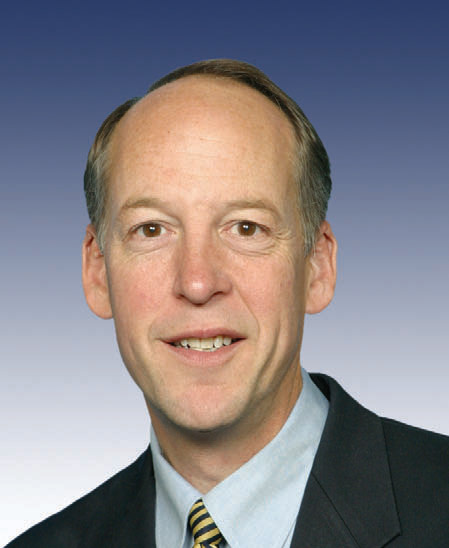Partly in response to the Federal Communications Commission’s handling of the Comcast-NBCU merger, the House Energy and Commerce Committee approved two pieces of legislation that would prevent regulatory overreach by requiring any conditions imposed on transactions to be within the commission’s existing authority and be tailored specifically to transaction-specific harms.
The Federal Communications Commission Process Reform Act of 2011 (H.R. 3309) and the Federal Communications Commission Consolidated Reporting Act of 2011 (H.R. 3310) both received committee approval in early March. H.R. 3309 subsequently passed the House by a 247-174 vote on March 27, and was amended to include the FCC FOIA Amendment, authored by Rep. Mario Diaz-Balart (R-FL), which requires the FCC to implement new policies and practices to promote greater public disclosure of how the agency handles Freedom of Information Act requests.
The bills are intended to increase FCC transparency, predictability, and consistency when the agency considers telecommunication mergers. The goal, say the bills’ sponsors, respectively Rep. Greg Walden (R-OR) and Rep. Steve Scalise (R-LA), is to prevent the FCC from exercising its regulatory authority in ways that discourage job creation, investment, and innovation.
“Because companies are desperate to get their mergers approved, the FCC has the unique power to extort companies to agree to ‘voluntary commitments,'” wrote Rep. Cliff Stearns (R-FL), chairman of the House Energy and Commerce Subcommittee on Oversight and Investigations, in an email to InfoTech & Telecom News. “For example, in the Comcast-NBCU merger last year, the companies agreed to abide by the FCC’s net neutrality rules, even if these rules are overturned in court. Not only was this condition not merger-specific, but it went far beyond what the FCC would be able to do under its rulemaking authority.”
Stearns continued: “Comcast agreed to a whole host of other conditions in order to get its merger approved, regardless of the fact that its combination with NBCU was a vertical, rather than a horizontal merger, which is generally viewed much more favorably. I, along with other members, have made it a priority to reform the process at the FCC, including its transaction reviews.”
FCC ‘Abuses Its Authority’
Randolph May, president of the Free State Foundation, a free-market think tank in Maryland, says the FCC’s approval process unfairly singles out merger applicants for regulation that, if justified at all, should be applied on an industry-wide basis.
“The FCC’s handling of the Comcast-NBC Universal transaction is a good example of what’s wrong with its merger-approval process,” May said. “The commission imposed a lot of conditions which were unrelated to any competitive concerns [in] the specific transaction, and the way the FCC goes about doing this is particularly troubling because it suggested to Comcast that it offer up certain commitments on a voluntary basis.”
May added, “Because the Commission is assessing the merger through the lens of the ‘public interest,’ it is easy for the agency to decide that almost any condition it can think up is within the public interest. And that’s what occurred in its review of the Comcast-NBC Universal transaction.
“Whenever the commission acts in the way it did in the Comcast-NBC Universal case, it appears to be acting in an unseemly way that abuses its authority,” he explained.
‘Regulations, Not Conditions’
Bartlett D. Cleland, policy counsel with the Institute for Policy Innovation, a public policy institute in Lewisville, Texas, agrees with May, “In general, it is wrong for the FCC to require concessions from two companies that are desperate to merge or make a deal,” Cleland said.
“In this case, the companies were distracted because they were focused on hammering out the details of the deal, and along comes the FCC piling on a bunch of unnecessary concessions on top that end up squeezing value out of the deal,” Cleland added. “The whole reason the two companies came together in the first place is that they saw some value in it, but if the FCC squeezes enough profit from the margins, at some point both parties might just walk away,” he said.
“Also, these are regulations, not conditions, and to apply them to one company instead of across the industry is wrong. I recognize that some regulations are necessary, but if the FCC is going to issue them, then they should apply to everyone in the industry,” he explained.
Call for More Transparency
Cleland said current FCC Chairman Julius Genachowski has expanded the mission of the agency “to the point where it’s so big that it’s monkeying around in deals between private companies. We would all like to see increased transparency from government agencies like the FCC and see it brought back to its original purpose so that people know how and why it does things,” he said.
“For instance, wouldn’t it be better if the FCC were working on something that affects the entire nation, like the wireless spectrum crunch, instead of spending so much time interfering in the deal between Comcast and NBC Universal?” Cleland asked.
“We can ponder an FCC that is smaller, that focuses on core issues and makes sure that its regulations add value to industry and consumers,” he said.
Kenneth Artz ([email protected]) writes from Dallas, Texas.
Internet Info
“The Federal Communications Commission Process Reform Act of 2011 (H.R. 3309),” Rep. Greg Walden, 112th Congress, 2011-2012: http://www.govtrack.us/congress/bill.xpd?bill=h112-3309
“The Federal Communications Commission Consolidated Reporting Act of 2011 (H.R. 3310),” Rep. Steve Scalise, 112th Congress, 2011-2012: http://www.govtrack.us/congress/bill.xpd?bill=h112-3310




